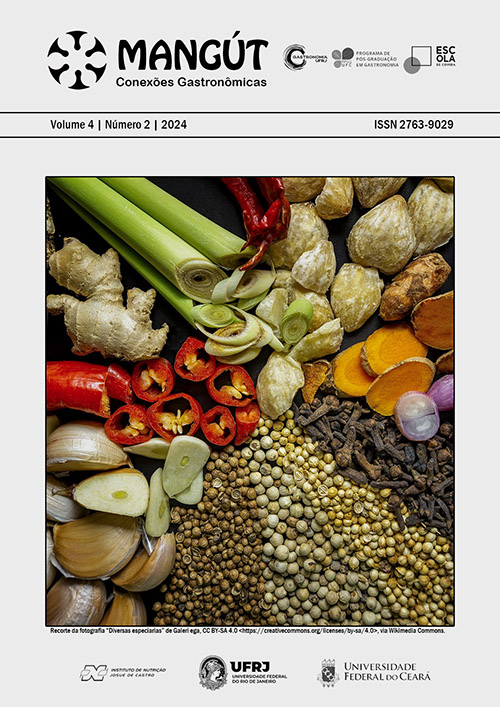Food, ritual and the reconstruction of the Sacred House in East Timor
DOI:
https://doi.org/10.70051/mangt.v4i2.65057Keywords:
Gastronomy, Ritual food, Food transformation, Uma Lulik, Animism, Timor-LesteAbstract
This article is based on a fieldwork carried out in Timor-Leste in 2018, and starts with a visit to a mountain village to observe and participate in ceremonies and rituals for the reconstruction of a Sacred House or Uma Lulik. This community, country and region are part of the so-called “society of houses” in which the House can be understood as a kinship group, a ritual and political unit that has food and rituals as a form of legitimation. During the ceremonies, the importance of the rituals, the animal sacrifices, the division of their meat to renew the bonds of alliance between the wife-taker Houses and the wife-giver Houses, the food specimens served at the banquet and the presence of the natural environment and its transformation at the table became clear. This was a pretext for reflecting on the origin, circulation between territories, production and consumption of the foods identified, on how foods of plant and animal origin are appropriated, perceived, transformed, and as sentient beings according to animist beliefs, become ritual foods.
Downloads
Published
Issue
Section
License
Copyright (c) 2025 Luisa Coutinho

This work is licensed under a Creative Commons Attribution 4.0 International License.
Autores que publicam nesta revista concordam com os seguintes termos:
- Autores mantém os direitos autorais e concedem à revista o direito de primeira publicação, com o trabalho simultaneamente licenciado sob a Licença Creative Commons Attribution que permite o compartilhamento do trabalho com reconhecimento da autoria e publicação inicial nesta revista.
- Autores têm autorização para assumir contratos adicionais separadamente, para distribuição não-exclusiva da versão do trabalho publicada nesta revista (ex.: publicar em repositório institucional ou como capítulo de livro), com reconhecimento de autoria e publicação inicial nesta revista.
- Autores têm permissão e são estimulados a publicar e distribuir seu trabalho online (ex.: em repositórios institucionais ou na sua página pessoal) a qualquer ponto antes ou durante o processo editorial, já que isso pode gerar alterações produtivas, bem como aumentar o impacto e a citação do trabalho publicado (Veja O Efeito do Acesso Livre).



